You guys who are reading this and know me, you know I am well aware of the nitrogen cycle.
I have been watching my Clown Loaches over the course of the past few months, had a couple of new additions to the group etc.
I started to notice the reddening of the gills, almost shiny metallic - bare in mind I only started looking closely after the new additions so I am not totally sure if they were red before or red after the new additions (with Immi, it's hard to recollect anything nowadays).
There's no ammonia/nitrite. That rules that out.
They're not gasping at the surface or having rapid gill movements but I did notice the odd 'flicking' motions.
This led me to believe it was flukes which were infecting the other fish.
Does the fluke parasite migrate to other hosts?
I have treated with Flubendazole for two weeks now. Large water change, add appropriate dosage, 7 days later, large water change (today) and add another dose.
I understand 'wormers' can take a long time to be effective.
The gills are still red, so I started thinking about chlorine and how it affects their gills.
When I fill the tank, I use a python from the shower into the tank - I add Prime into the stream as it's filling.
What effect does chlorine have on fish? Could this be a possible reason for the redness?
Now, I should've done this a long time ago but I never bothered as I've always done regular water changes and not had any problems.
I tested the nitrate AFTER I did the 50% water change.
The reading came out at around 100ppm..
I then tested the tap water and guess what? It came out at around 60/80ppm.
I immediately rang the water company who said they will test it and get back to me tomorrow.
What long term effects does high nitrate have on fish? Could this cause the red gills after about a years exposure to it?
Will it ever heal if I get the nitrates down to 10/20ppm?
What possible solutions are there? RO/HMA? Chemical media in the filtration?
I read on a couple of other forums and such that younger Clowns exhibit the redder gills, because they're just young.
Are the red gills normal in younger Clowns? Is this just total bull?
Obviously the high nitrate is a problem that needs sorting ASAP but it would be a nice coincidence if it was the reason for the red gills as it would solve two problems by fixing the nitrate.
Thanks for reading!
I have been watching my Clown Loaches over the course of the past few months, had a couple of new additions to the group etc.
I started to notice the reddening of the gills, almost shiny metallic - bare in mind I only started looking closely after the new additions so I am not totally sure if they were red before or red after the new additions (with Immi, it's hard to recollect anything nowadays).
There's no ammonia/nitrite. That rules that out.
They're not gasping at the surface or having rapid gill movements but I did notice the odd 'flicking' motions.
This led me to believe it was flukes which were infecting the other fish.
Does the fluke parasite migrate to other hosts?
I have treated with Flubendazole for two weeks now. Large water change, add appropriate dosage, 7 days later, large water change (today) and add another dose.
I understand 'wormers' can take a long time to be effective.
The gills are still red, so I started thinking about chlorine and how it affects their gills.
When I fill the tank, I use a python from the shower into the tank - I add Prime into the stream as it's filling.
What effect does chlorine have on fish? Could this be a possible reason for the redness?
Now, I should've done this a long time ago but I never bothered as I've always done regular water changes and not had any problems.
I tested the nitrate AFTER I did the 50% water change.
The reading came out at around 100ppm..
I then tested the tap water and guess what? It came out at around 60/80ppm.
I immediately rang the water company who said they will test it and get back to me tomorrow.
What long term effects does high nitrate have on fish? Could this cause the red gills after about a years exposure to it?
Will it ever heal if I get the nitrates down to 10/20ppm?
What possible solutions are there? RO/HMA? Chemical media in the filtration?
I read on a couple of other forums and such that younger Clowns exhibit the redder gills, because they're just young.
Are the red gills normal in younger Clowns? Is this just total bull?
Obviously the high nitrate is a problem that needs sorting ASAP but it would be a nice coincidence if it was the reason for the red gills as it would solve two problems by fixing the nitrate.
Thanks for reading!


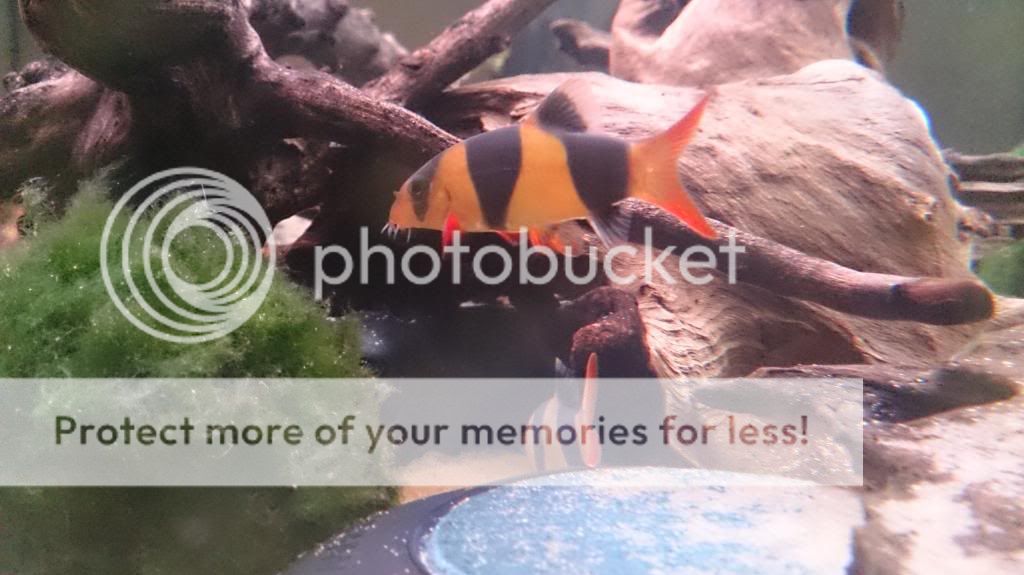
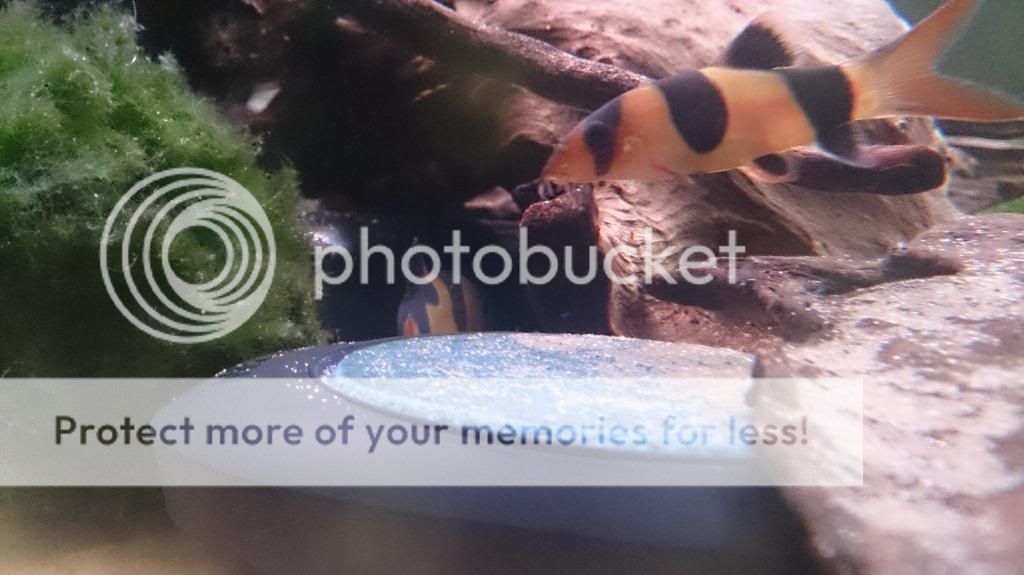
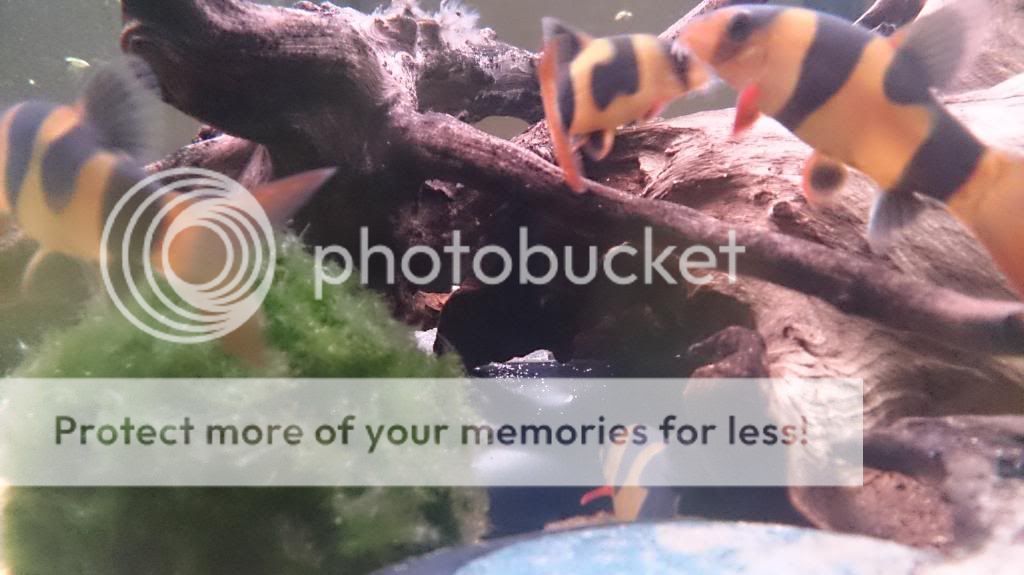
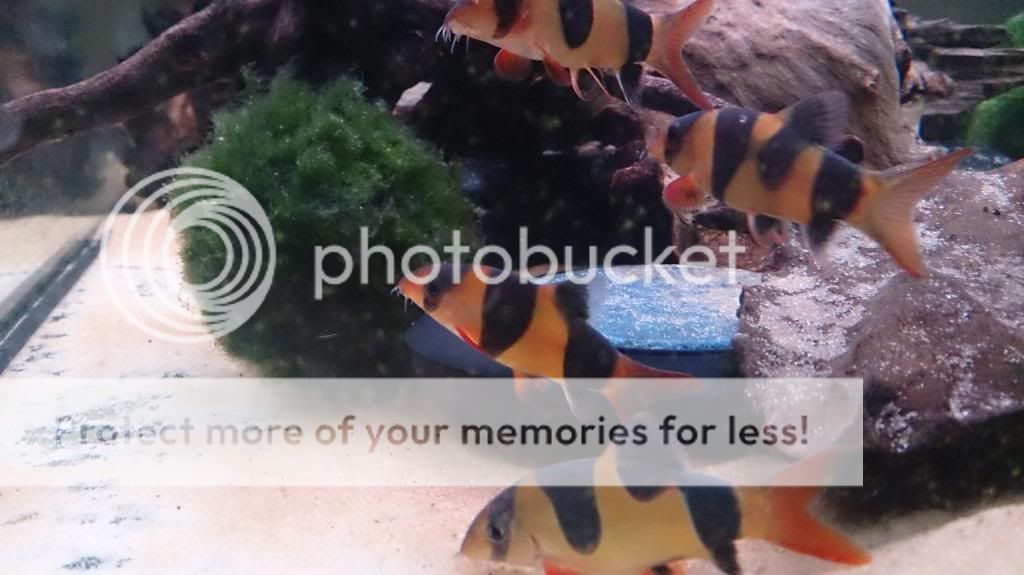
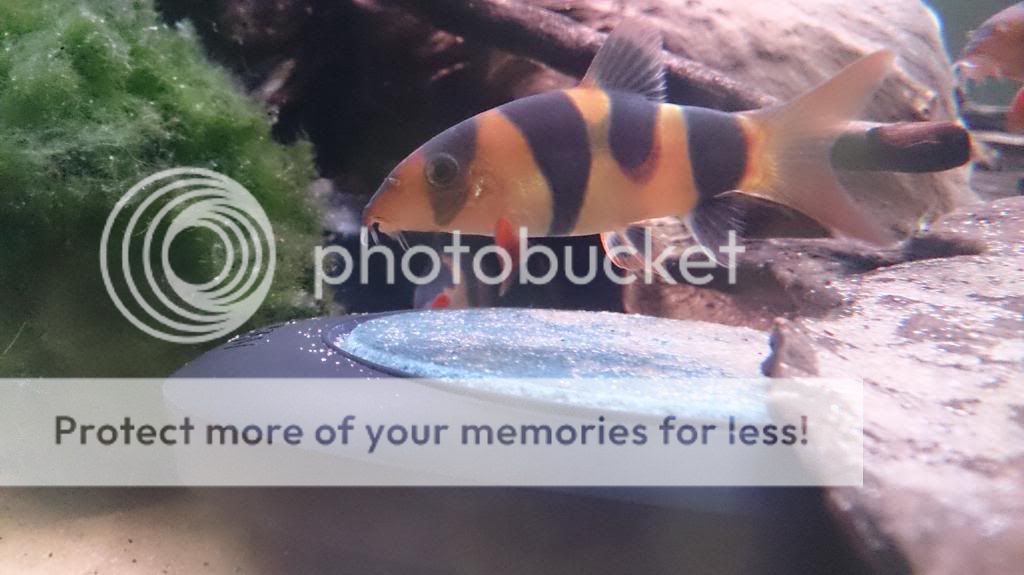
 /s1118.photobucket.com/user/SofieSTARR/media/MOV_0860.mp4.html
/s1118.photobucket.com/user/SofieSTARR/media/MOV_0860.mp4.html